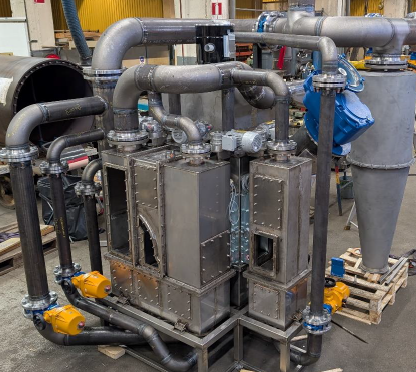Thermochemical conversion—such as pyrolysis and gasification—is a process in which biomass is transformed at high temperatures in the absence (or near absence) of oxygen. These conversion pathways enable the production of a wide range of renewable fuels and chemicals, including pyrolysis oil, industrial fuel gas, synthetic natural gas, and even sustainable aviation fuel.
In several previous projects, BioShare has collaborated with customers in both the forest industry and district heating sector to explore how fuel conversion reactors can be integrated into fluidized-bed boilers. The results show that this type of co-production can offer high resource efficiency, strong climate performance, and economic viability—making it attractive to energy producers looking to broaden their offerings beyond just heat and power.
In Sweden alone, 87 combined heat and power (CHP) plants have been identified as technically suitable for conversion to co-production. If these plants were upgraded, the estimated total output of liquid and gaseous biofuels could reach 10–20 TWh per year.
At the core of BioShare’s co-production technology are indirectly heated reactors integrated with the combustion chambers of fluidized-bed boilers. These reactors convert biomass into gas or oil using heat transported by the boiler’s bed material—typically hot sand. Approximately 10–20% of the biomass’s energy content is required to drive the conversion process, depending on the desired end product.
Here’s how it works:
- Heated sand is circulated from the boiler’s combustion zone into the conversion reactor.
- Inside the reactor, the sand transfers its heat to the biomass, enabling the transformation into fuel gas or oil.
- The cooled sand is then returned to the boiler, reheated, and re-used—creating a continuous loop of energy transfer.
This integrated approach results in several benefits:
- Lower investment cost compared to standalone solutions
- Increased plant utilization and operational flexibility
- Efficient use of excess heat, leading to exceptional overall system efficiency
A key innovation in BioShare’s solution is the reliable and scalable sand transport system that enables this integration. The development of this core technology has been ongoing for several years in close collaboration with the Division of Energy Technology at Chalmers University of Technology.

